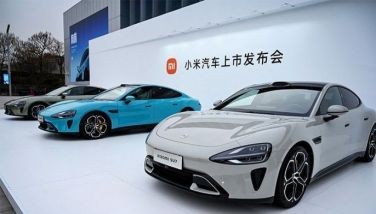The Art of War vs. The Art of the Deal

As the US and China are locked in a trade war, investors and businessmen may benefit from reading two important books. The first book, “The Art of War,” is an ancient book on warfare attributed to Sun Tzu, a Chinese military strategist. The book imparts valuable insights that can also be applied in diplomacy and business. The other book, “The Art of the Deal,” is authored by Trump and contains his core precepts in business and negotiations. Studying the two books may give one an insight on the thinking of the protagonists in the trade war. This can serve as a guide in navigating the challenging market conditions that the trade war has brought.
Heeding the lessons from Sun Tzu
Below, we list some of the important quotes from the book “The Art of War.”
1. “The supreme art of war is to subdue the enemy without fighting.” China has made diplomatic efforts to reach out to Trump in order to open the door for negotiations. Though the country does not favor a trade war, China said “it is only polite to reciprocate.” A tactic that China has used is currency depreciation. Since the start of the trade war, the Chinese yuan has significantly depreciated against the US dollar.
2. “Appear weak when you are strong, and strong when you are weak.” China is currently dealing with various domestic concerns such as decelerating growth and excessive leverage. Though it may appear weak to some, China still has powerful weapons in its arsenal. For example, China can slow down its purchases of US Treasurys or even sell a portion of its holdings. China can also instigate boycotts of US products.
3. “In the midst of chaos, there is opportunity.” As the US slips back into protectionism, China is portraying itself as the new champion of free trade. Meanwhile, China’s major projects, such as the Modern Silk Road and The Asian Infrastructure Investment Bank, illustrate its growing economic influence and willingness to spearhead multilateral cooperation.
Trump’s art of the deal
Below, we quote some of the tactics in Trump’s book.
1. “My style of deal-making is quite simple and straightforward. I aim very high, and then I just keep pushing and pushing and pushing to get what I’m after.” Trump’s approach to business and negotiations is predicated on his boldness and aggression. Initially, Trump started by imposing tariffs on $34 billion of Chinese goods. He then announced tariffs on $200 billion of Chinese products. Last Friday, Trump raised the target list to $500 billion, equivalent to the total value of US imports from China.
2. “The worst of times often create the best opportunities to make good deals.” Trump is aware he is pushing China in to a corner when the Asian giant is vulnerable. Thus, Trump believes this is the best time to squeeze out key concessions on trade and intellectual property from China.
3. “To succeed in business, you must take risks.” Despite the dangers of a trade war, Trump believes that he is taking a calculated risk by tackling a major economic issue ahead of the midterm election.
4. “Protect the downside and the upside will take care of itself.” According to Bloomberg data, US exports to China amounted to only $155 billion in 2017. Given this, Trump thinks China will not be able to keep up if the US imposes tariffs on up to $500 billion of Chinese products.
Notably, an interview last Friday clearly illustrates the thinking and negotiating tactic of Trump. He remarked that strong gains in the stock market since his election gives him the opportunity to wage a trade war. He said, “We’re playing with the bank’s money.”
5. “I’ve read hundreds of books about China over the decades. I know the Chinese. I’ve made a lot of money with the Chinese. I understand the Chinese mind.” This quote from his book reveals the mindset of Trump. He believes he has the experience and insight to properly deal with China.
The case for the US winning
Mohamed El Erian, chief economic advisor at Allianz, believes that the US is winning the trade war so far, as seen in the performance of US markets relative to China and other countries. As we have written in our recent articles, US indices have performed well, while the Nasdaq and the Russell reached new all-time highs. Meanwhile, Chinese indices dropped sharply since the trade war began. El Erian also explained that the US has a dynamic economy which should enable it to adapt better to a prolonged trade war.
The case for China winning
However, Stephen Roach, a prominent economist and former Morgan Stanley chair, believes the US is on track to lose this trade war. Roach stated that the US is largely dependent on China as a source of cheap goods which are utilized by American consumers. Thus, the US may end up shooting itself in the foot as its tariffs on Chinese imports may drive US consumer prices higher. Moreover, Roach said the US relies on China to buy its debt stock and fund its widening budget deficit.
Markets hoping for a deal, not a war
Investors and businessmen can refer to the two books to better understand the two main protagonists in the ongoing trade war. Key insights from “The Art of War” and “The Art of the Deal” may serve as guideposts when formulating investment and business decisions at a tumultuous time such as this. Meanwhile, investors are hoping that distilled wisdom from the two books will guide Trump and Xi Jinping towards a deal and away from engaging in a protracted trade war.
Philequity Management is the fund manager of the leading mutual funds in the Philippines. Visit www.philequity.net to learn more about Philequity’s managed funds or to view previous articles. For inquiries or to send feedback, please call (02) 689-8080 or email [email protected].
- Latest
- Trending































